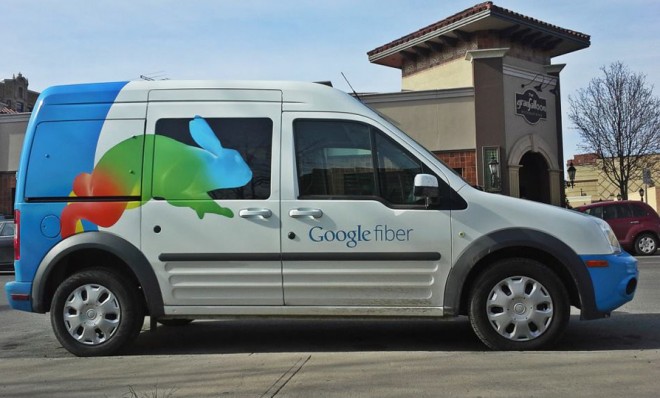Google Fiber arrives in Austin: What it means for the rest of America
Texas' epicenter of arts and tech is next in line to receive Google's blazing-fast internet. Sorry, California

A free daily email with the biggest news stories of the day – and the best features from TheWeek.com
You are now subscribed
Your newsletter sign-up was successful
Forget Google Glass. Even more enticing to many tech junkies all over the country is the search king's next-generation high-speed network, Google Fiber.
On Tuesday, in a development that didn't come as a huge surprise, Google confirmed that Fiber is coming soon to Austin, Texas. Here's what Google had to say about Texas' soon-to-be-speedier capital.
It's a mecca for creativity and entrepreneurialism, with thriving artistic and tech communities, as well as the University of Texas and its new medical research hospital. We're sure these folks will do amazing things with gigabit access, and we feel very privileged to have been welcomed to their community. [Google]
By mid-2014, Austin residents will have access to close to 200 HD TV channels and a range of connection plans that are touted as "100 times faster than today's average broadband performance." It'll cost $120/month for Gigabit internet and TV, $70/month for Gigabit internet only, or zero dollars a month for normal-speed internet (plus a one-time $300 installation fee).
The Week
Escape your echo chamber. Get the facts behind the news, plus analysis from multiple perspectives.

Sign up for The Week's Free Newsletters
From our morning news briefing to a weekly Good News Newsletter, get the best of The Week delivered directly to your inbox.
From our morning news briefing to a weekly Good News Newsletter, get the best of The Week delivered directly to your inbox.
So what does it mean for all of us who don't live in Austin? For starters, the choice appears to be "the clearest signal yet that the tech giant is seriously about becoming an internet-service provider," says Sam Gustin at TIME.
Taking on broadband giants like Comcast and Time Warner Cable is a tall order, because those companies dominate most U.S. markets. When Google Fiber was announced, many observers believed the company's goal would be to shame those giants into improving their offerings, by demonstrating that vastly faster broadband service is possible in the U.S. Improving U.S. broadband speed and penetration is important for Google, because the more people who use broadband Internet, at faster speeds, the more Google searches get executed... With Google Fiber's impending arrival in Austin, the project is increasingly looking like a real business for the company, and not just a shaming exercise. [TIME]
Google has declined to specify how much it will cost to install the Google Fiber network in Austin, although analysts have pegged an earlier Kansas City rollout to have cost the company $84 million. Austin, however, presents a greater logistical challenge, with a much larger total population of 800,000 residents.
Now, the question naturally turns to: When will Google Fiber come to [insert your city here]? The answer, says Tim Worstall at Forbes, is don't hold your breath. Current estimates peg the cost of a nationwide deployment near the $140 billion mark — technically possible, though a huge financial stretch for Google. Then there's the high likelihood that Fiber will still face incredible challenges from current providers to keep new entrants out. "The lawyers for the current incumbents will tie everyone up in knots inside the various bureaucracies. And people simply don't have the time, money or inclination to spend their lives fighting that," says Worstall.
Just how is the competition responding? In a statement, Time Warner Cable said that the company is "prepared for added competition and believe[s] that any innovation in broadband technology is good for all of us." Let's hope so.
A free daily email with the biggest news stories of the day – and the best features from TheWeek.com
-
 Political cartoons for February 19
Political cartoons for February 19Cartoons Thursday’s political cartoons include a suspicious package, a piece of the cake, and more
-
 The Gallivant: style and charm steps from Camber Sands
The Gallivant: style and charm steps from Camber SandsThe Week Recommends Nestled behind the dunes, this luxury hotel is a great place to hunker down and get cosy
-
 The President’s Cake: ‘sweet tragedy’ about a little girl on a baking mission in Iraq
The President’s Cake: ‘sweet tragedy’ about a little girl on a baking mission in IraqThe Week Recommends Charming debut from Hasan Hadi is filled with ‘vivid characters’